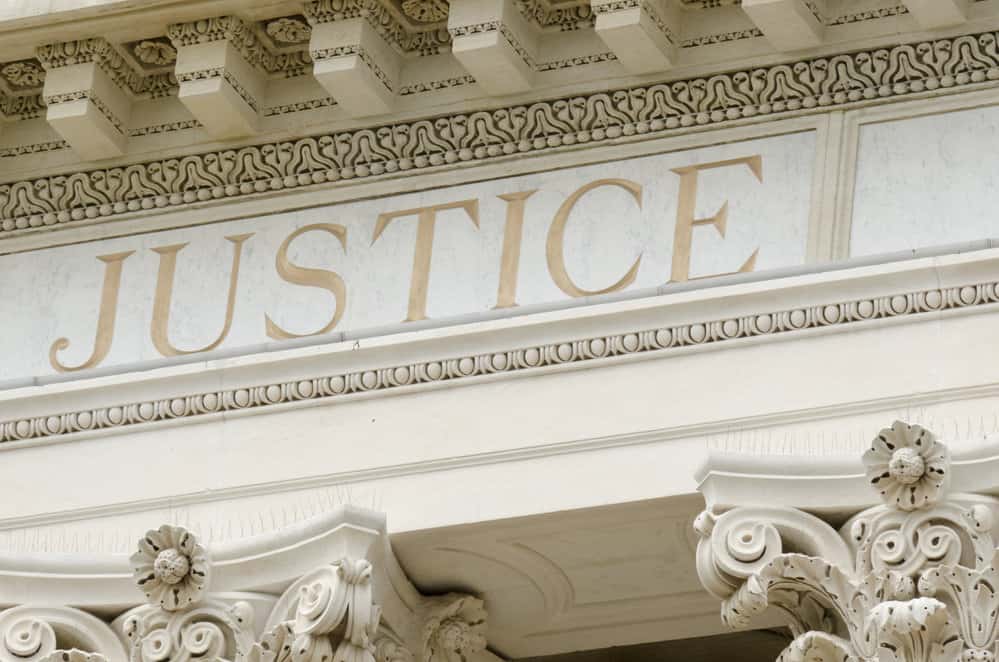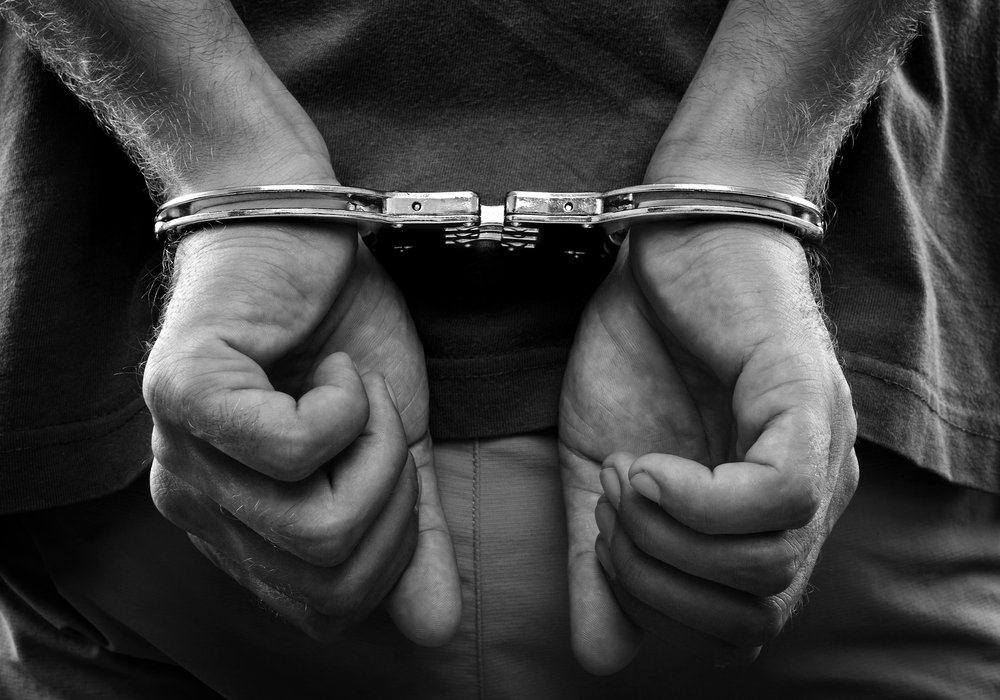Prostitution, often called the world’s oldest profession, has been the subject of varying legal treatment in different jurisdictions. In some regions, it is a legally recognized and even regulated industry; in others, it is a criminal offense that carries severe penalties. Understanding the legal and social implications of engaging in prostitution is crucial, as it may expose both the prostitute and the soliciting client to possible incarceration and other consequences.
In the United States, laws regarding prostitution differ from state to state. Generally, prostitution is considered a crime, but the severity varies depending on the specific act committed, the parties involved, and the circumstances surrounding the offense. These factors contribute to the range of potential jail time and other penalties that may be imposed upon conviction. For example, a first-time offender may face a shorter sentence, while repeat offenders or those engaging with minors may receive harsher consequences.
Key Takeaways
- Prostitution laws and penalties vary greatly across different states in the US.
- Factors such as the nature of the specific act and the parties involved can influence the jail time and consequences.
- A solid defense from an attorney can greatly impact the outcome of prostitution-related cases.
Understanding Prostitution Law
When discussing the topic of prostitution, it is essential to have a firm grasp of the laws surrounding the act. In general, prostitution laws differ from one state to another, meaning that the penalties for such activities can vary. One must understand the legal landscape of escort services and prostitution to avoid being charged with solicitation or other related offenses.
Prostitution typically involves engaging in sexual activities with another person in exchange for money or other forms of compensation. In most states, offering, agreeing, or engaging in such activities is considered criminal and may be punishable by law. However, these acts’ penalties can vary widely depending on the specific circumstances and jurisdiction. It is crucial to consult a lawyer to understand the extent of legal consequences if one is accused or charged with prostitution offenses.
In some cases, soliciting prostitution, which involves offering money or other compensation in exchange for sexual activities, may also be punishable by law. The penalties for solicitation can be equally severe, emphasizing the need to remain compliant with state regulations. You can refer to this article to gain more insight into the legality of escort services in the US.
While it could be tempting to oversimplify or generalize the laws and penalties surrounding prostitution, the reality is more complex. Each case must be considered individually, considering the unique circumstances and the location’s legal framework. Therefore, it is essential to consult local legal counsel to understand the intricacies of the prostitution laws in your state.
Classifications: Misdemeanor Vs Felony
In most jurisdictions, prostitution charges are classified as either misdemeanors or felonies. The categorization is determined by the specific circumstances of the offense, as well as the severity of the penalties imposed upon conviction.
Misdemeanors are typically considered less severe than felonies. They usually involve less serious penalties, such as fines, probation, or shorter jail sentences. Misdemeanor prostitution charges include soliciting or engaging in prostitution as a customer (sometimes called “johns”) or as a prostitute. In some jurisdictions, first-time offenders may be charged with a misdemeanor, while repeat offenders or those involved in more severe situations may face harsher penalties.
On the other hand, felonies are more serious offenses and carry stiffer penalties, including longer prison sentences, hefty fines, and mandatory registration as a sex offender. Circumstances that can elevate a prostitution charge to a felony level include involvement in human trafficking, promoting prostitution (i.e., acting as a pimp or manager of a prostitution operation), or engaging in prostitution with minors.
The specific penalties for misdemeanor and felony prostitution charges vary depending on the jurisdiction. In general, misdemeanor charges can result in fines ranging from a few hundred to several thousand dollars, probation, or jail sentences of up to one year. Felony charges have more severe consequences, with prison sentences often ranging from one year to several decades, depending on the severity of the offense.
It is important to note that laws and penalties for prostitution vary greatly from one location to another. The classification of the offense may differ based on local ordinances, state statutes, or federal laws. Therefore, individuals facing prostitution charges must consult with a knowledgeable attorney who can provide accurate guidance on the specific circumstances of their case.
Arrest and Evidence Gathering
When investigating cases of prostitution, police often use undercover stings to catch the offenders. In such cases, the process of gathering evidence typically involves officers posing as potential clients or prostitutes themselves. During the operation, officers document the conversations and interactions, often capturing the necessary proof to secure a conviction.
These undercover operations can lead to arrests of alleged prostitutes and their clients. In many cases, the police will gather evidence meticulously to avoid any potential legal loopholes. People participating in these activities should thus remain wary of encountering law enforcement during their transactions.
Recognizing the indicators and safety tips associated with such operations is an essential aspect of identifying potential stings. By understanding the legal aspects and common red flags, individuals may be able to avoid falling victim to a prostitution sting.
Upon arrest, the alleged prostitute and the client may face various legal consequences. The severity of penalties varies based on the jurisdiction and specific circumstances, but in some cases, imprisonment is a possibility. In addition to potential jail time, other consequences may include fines, mandatory classes, and a mark on a person’s criminal record, which could impact future employment and other aspects of their life.
To summarize, arrest and evidence gathering in prostitution cases often rely on carefully planned stings and thorough documentation. Recognizing common warning signs can be crucial for those who wish to avoid risking their freedom.

Jail Time and Consequences
The amount of jail time a person can face for prostitution varies depending on the jurisdiction and specific circumstances of the case. In most countries, prostitution is decriminalized or punishable with various penalties, including fines and incarceration.
In some jurisdictions, like the United States, legal consequences for prostitution depend on individual state laws. Jail time for a first-time offense can range from a few days to several months, while repeat offenses may result in more severe penalties, including years in prison. For instance, in California, a first-time offense may carry a sentence of up to six months in jail, while a second or subsequent offense can result in up to a year of incarceration.
The consequences of a conviction for prostitution extend beyond the immediate legal penalties. Those convicted of prostitution may find it difficult to secure employment due to their criminal record, limiting their opportunities for a stable income. Additionally, the social stigma associated with prostitution can affect a person’s relationships, personal well-being, and prospects for the future.
It is essential to remember that the laws and penalties for prostitution vary greatly across different countries and even within different regions of the same country. Therefore, it is critical to consult local laws and regulations to determine the specific consequences tied to the offense.
The jail time and consequences for prostitution can differ substantially due to the legal frameworks and specific circumstances surrounding the case. Moreover, the negative impact on a person’s life extends beyond legal punishment, significantly affecting their social and economic well-being.
Importance of Defense Attorney
A defense attorney’s role in a prostitution case is crucial. Engaging a skilled lawyer can greatly impact the outcome of such cases. They have the expertise to navigate the complex legal system and effectively fight for their client’s rights.
In many jurisdictions, punishments for prostitution can range from fines and community service to jail time. A criminal defense attorney, with their extensive knowledge of the law, can assist clients in avoiding or minimizing these penalties. They are proficient in examining the circumstances of the case, identifying weaknesses in the prosecution’s arguments, and challenging evidence where necessary.
Another vital aspect of the defense attorney’s job is to ensure that their client’s constitutional rights are not violated during the arrest and investigation process. This may include questioning the legality of searches, seizures, or potential entrapment by law enforcement officers. In such cases, evidence obtained through these methods can be deemed inadmissible, strengthening the defense’s position.
Furthermore, criminal defense attorneys can help clients explore alternative resolutions that may benefit them in the long run. For example, in some states, diversion programs allow first-time offenders to undergo counseling and complete community service instead of serving jail time. By genuinely understanding their clients, defense attorneys can guide them toward options that may not be apparent to non-specialists.
In conclusion, the importance of a defense attorney in prostitution cases cannot be overstated. They provide invaluable guidance and support to their clients during a tumultuous time and can significantly impact the case’s outcome.
State-Wise Sentence and Penalties
In the United States, laws on prostitution vary from state to state. The sentence and penalties for those involved may vary significantly depending on the jurisdiction.
In California, the punishment for prostitution can depend on whether the person is charged with a misdemeanor or felony. A misdemeanor conviction carries a penalty of up to six months in jail, while a felony conviction can result in up to three years in prison. Fines can range from $1,000 to $10,000, depending on the nature of the offense.
Texas also has strict laws on prostitution. Persons convicted may face jail sentences from 180 days for a first-time offender to two years for repeat offenders. Fines can range from $2,000 to $10,000, depending on the severity of the offense.
It is important to note that some states may have more severe penalties if minors are involved or if the person engaged in prostitution is a victim of human trafficking. State laws and their severity underscore the importance of understanding the legal implications of engaging in or soliciting prostitution within a specific jurisdiction.
Role of Prosecutor and Courtroom Process
In cases involving prostitution charges, the prosecutor’s role is critical in determining the outcome. They are responsible for presenting the case against the defendant, gathering evidence, and questioning witnesses to support the claim that the accused has engaged in illegal activities related to prostitution.
During the trial, the prosecutor collaborates with law enforcement agents to establish the facts of the case. They present the police reports, surveillance footage, and relevant documentation to the judge. Often, the prosecutor negotiates plea deals with the defense attorney to reduce the potential sentence in exchange for a guilty plea or cooperation in a related investigation.
The courtroom process begins with the arraignment, during which the defendant enters a plea. A sentencing hearing may be scheduled immediately or later if the defendant pleads guilty. However, a trial will be scheduled if the defendant pleads not guilty.
In the trial, the prosecutor and defense counsel present opening statements, outline the evidence they will present, and provide the context of their argument. Following this, testimonies from witnesses and the presentation of physical evidence are received. The prosecutor is responsible for directly examining their witnesses, while the defense counsel is cross-examining.
The judge oversees the entire process, ensuring that court proceedings follow established legal guidelines. The judge is the ultimate authority in the courtroom and can admit or reject evidence, rule on motions, and determine the validity of legal arguments. The courtroom process is structured to allow for a fair and impartial trial, with the judge maintaining an unbiased perspective and focusing on the facts of the case.
Once all evidence and testimonies have been presented, the prosecutor and defense counsel deliver closing arguments, summarizing their positions and encouraging the jury or judge to decide in their favor.
After the closing arguments, the judge or jury deliberates and reaches a verdict. In a jury trial, a unanimous decision must be reached for a guilty or not guilty verdict. The judge is then responsible for determining the appropriate sentence based on applicable laws and guidelines. The length of the jail term for prostitution charges may vary significantly depending on the jurisdiction, the nature of the offense, prior convictions, and other relevant factors.
Throughout the process, the roles of the prosecutor, judge, and courtroom are essential in establishing guilt or innocence and ensuring that justice is served. Although the legal system may seem complex at times, it is designed to protect the rights of both the accused and the public while also upholding the rule of law.

Solicitation is the act of requesting, encouraging, or demanding someone to engage in prostitution. In many jurisdictions, it is considered a criminal offense regardless of whether the person solicited ultimately agrees to engage in the act. The person offering sexual services and the customer, often called a “john” or “buyer,” can be charged with solicitation.
The penalties for solicitation may vary greatly, depending on the location and circumstances of the case. In some areas, first-time offenders may be subjected to misdemeanor charges, often resulting in fines and probation. However, repeat offenders can face more severe consequences, such as incarceration or the requirement to attend court-mandated rehabilitation programs.
In addition to the solicitation, several related offenses can lead to criminal charges. For instance, pandering, or pimping or procuring, involves persuading or coercing another person into prostitution. This is a more severe charge than solicitation, and those convicted of pandering can face longer jail sentences and heavy fines.
Moreover, some jurisdictions also criminalize engaging in or promoting prostitution through various statutes, such as brothel-keeping, facilitating prostitution, or human trafficking. These offenses are all designed to combat the negative effects of prostitution on society and help protect vulnerable individuals from exploitation.
It is important to note that laws regarding solicitation and related offenses may specifically target the buyer in some locations. This approach, often called the “end demand” model, penalizes those seeking sexual services rather than punishing the sex workers themselves (often, they are trafficked or working off a debt to the pimp). The intent behind this approach is to deter individuals from engaging in illegal activities that contribute to the demand for prostitution.
In conclusion, understanding the legal framework surrounding solicitation and related offenses is crucial for both the individuals involved in the commercial sex industry and society. It is essential to be aware of the potential consequences of engaging in illicit activities and strive toward a safer and more informed environment.
Consequences for Minors and First-Time Offenders
When considering the legal consequences of prostitution, it’s important to differentiate between minors and first-time adult offenders. As with any legal topic, variations exist depending on jurisdiction and specific circumstances.
For minors involved in prostitution, the response is generally protective rather than punitive. In most countries, minors are considered victims of exploitation. They are often referred to support services and rehabilitation programs rather than facing criminal charges. This approach recognizes the vulnerability of minors and aims to provide them with a safer and more stable environment.
On the other hand, first-time adult offenders may receive more lenient treatment than repeat offenders. In many jurisdictions, first-time offenders may face probation, fines, mandatory counseling, or community service. Probation typically requires the individual to adhere to specific conditions, such as avoiding certain locations or having regular check-ins with a probation officer. These consequences serve as a deterrent and an opportunity for the individual to reflect on their actions and avoid future involvement in prostitution.
It is important to note that penalties vary greatly depending on each case’s jurisdiction and specific circumstances. Factors that may influence the severity of legal consequences include the individual’s age, prior criminal record, and the presence of coercion or trafficking. Regardless of the specific penalties, legal consequences for minors and first-time adult offenders generally focus on providing support and rehabilitation rather than strict punishment.
Potential Defenses in Prostitution Cases
In prostitution cases, exploring potential defenses to reduce or dismiss the charges against the accused is important. A criminal defense lawyer assesses the situation and develops a legal strategy tailored to their client’s unique case.
One potential defense is entrapment. Law enforcement officers may create a situation in which an individual feels compelled to engage in prostitution, even if they would not have done so under normal circumstances. In such cases, the accused can argue that they were a victim of entrapment.
Another defense could involve challenging the evidence presented in court. A criminal defense lawyer may examine surveillance footage, police reports, and witness testimony for inconsistencies or holes in the prosecution’s case, potentially weakening the charges against the defendant.
In some situations, a lack of proof can provide a sufficient defense. To secure a conviction, the prosecution must prove that the accused engaged in prostitution knowingly and willingly and that the actions constituted the act of prostitution. If the evidence does not meet this burden of proof, a defense lawyer can argue that their client should not be convicted.
Mistake of fact is another potential defense. If the accused genuinely believed that their actions were not illegal, this belief can be used as a defense. For example, if they were under the impression that they were engaged in a legal form of adult entertainment, they might be able to use this misconception to their advantage in court.
Lastly, a defense lawyer may consider questioning the arresting officer’s credibility. If the officer has a history of falsifying evidence or misconduct, the attorney can raise questions about the trustworthiness of their testimony in the case at hand.
While each case is unique, evaluating and selecting the most appropriate defense can significantly impact the outcome of prostitution cases. A knowledgeable criminal defense lawyer is essential in helping the accused navigate the complexities of the legal system and protect their rights.
Frequently Asked Questions
What is the punishment for prostitution in the US?
In the United States, the punishment for prostitution varies from state to state. Generally, penalties for prostitution can include fines, probation, and even jail time. In some states, first-time offenders may face lighter penalties, while repeat offenders might face harsher consequences. Remember that there may be additional penalties for trafficking or if a minor is involved.
Is prostitution a felony in the US?
Prostitution is considered a misdemeanor in most states in the US. However, specific circumstances, such as involving minors or participating in human trafficking, can make the charge a felony.
Criminal charges for prostitution
Criminal charges for prostitution may include soliciting, engaging in acts, or promoting prostitution. Penalties for these charges can vary depending on the circumstances and jurisdiction. Solicitation often results in a fine or probation, while engaging in more serious crimes associated with prostitution can lead to more severe consequences.
What happens if you get caught soliciting?
Getting caught soliciting can result in criminal charges, fines, and even potential jail time. The consequences depend on the state and the person’s criminal history. In some jurisdictions, first-time offenders may be directed to attend a “John school” to learn about the negative effects of solicitation on communities.
First time offense of prostitution consequences
In many states, first-time offenders face lighter penalties, such as a fine or probation. However, some jurisdictions have implemented diversion programs or mandatory education classes to address the underlying issues contributing to prostitution.
Where is prostitution legal?
In the United States, prostitution is legal only in specific counties of Nevada. Outside the US, some countries have legalized and regulated prostitution, such as the Netherlands and Germany. Other countries have decriminalized certain aspects of sex work, including New Zealand and parts of Australia.





